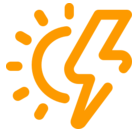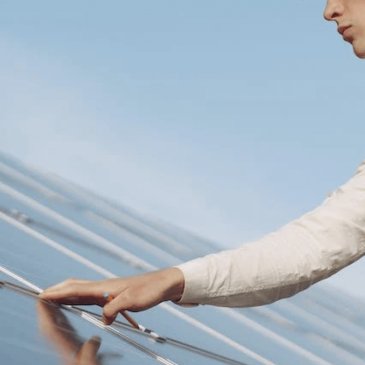What Solar Panel Owners Need to Know About Maintenance and More
Once a solar system is installed and up and running, it will require very little maintenance to keep providing clean energy to the home. But this doesn’t mean that it is totally maintenance free. In fact, most manufacturers recommend some degree of maintenance to be performed four times per year to ensure the system is operating at peak performance.
Because solar panels convert the sun’s rays into energy, they can pose a risk to homeowners who don’t take the proper safety measures when cleaning and maintaining their systems. In this post, you’ll learn how to practice proper solar panel safety by first understanding the system’s maintenance needs and taking the necessary steps to ensure you’re safe at all times while cleaning your panels.
Understanding Your Solar Panel Cleaning Needs
When installed, solar panels are pitched at an angle to optimize the amount of sunshine they are exposed to. This slight pitch generally allows rain and snow to slide off them with ease, and when they do they tend to take most of the dirt and dust that have collected on the surface of the panels with them.
While most manufacturers recommend maintenance four times per year, the number of times your system will require may be less or more depending on your climate and how dusty your area is. As a result, instead of sticking to a routine cleaning schedule, you can opt to monitor your system’s energy production and clean it once you notice it’s not working as efficiently as it was previously.
Safest Ways to Clean Your Solar Panels
If your solar panels have accumulated a layer of dust that is reducing their efficiency, then it’s time to clean them off. The safest ways to do so include using a leaf blower or a water hose. Never use a power washer to clean the panels as the powerful jet of water could create loose connections or damage components. A simple drenching with a standard hose will suffice.
If the dirt isn’t coming off with the water, then you can use a microfiber cloth to gently wipe the surface of the panels. Use caution not to press too hard on the surface of the panels or you could risk damaging the cells.
If your solar panels are covered with snow, then the safest way to clean them is to use a soft brush followed by a squeegee to remove any excess water. For dealing with thin layers of ice, you can pour lukewarm water to help melt the ice and then squeegee the panels to remove the excess water, so it doesn’t refreeze. It is important to use only lukewarm water, never hot. Pouring hot water over ice covered solar panels could cause them to crack.
Is There a Risk of Electrocution with Solar Panels?
The short answer is yes. There are several ways that a person can be electrocuted while cleaning their solar panels if they don’t practice proper safety. The problem is that many homeowners think that they can turn off their solar panels by flicking a switch by their inverter. This does not turn the solar panels off. It simply stops the inverter from accepting the energy that the panels are generating. The solar panels themselves will still be live, and not being aware of this can increase someone’s risk for electrocution.
It is because of this risk that not every homeowner will feel comfortable getting up on their roof and cleaning their solar panels. And that’s nothing to feel ashamed about. If you aren’t sure how to be safe around your solar panels, then you should definitely hire a solar technician to perform any cleaning or maintenance that might be needed.
Ask Your Solar Contractor About Post-Installation Services
In many cases, the company that installs solar panels might also provide cleaning and maintenance services. So, if you are worried about being able to maintain your system in a safe manner, then you may want to inquire about their post-installation add-on services.
Hiring the same contractor to maintain your system that installed it is always preferred over bringing in a new company because your contractor is already familiar with your system. This means that they know what products are included in your system’s design and what your warranties are, and this can be more of a benefit than you realize.

